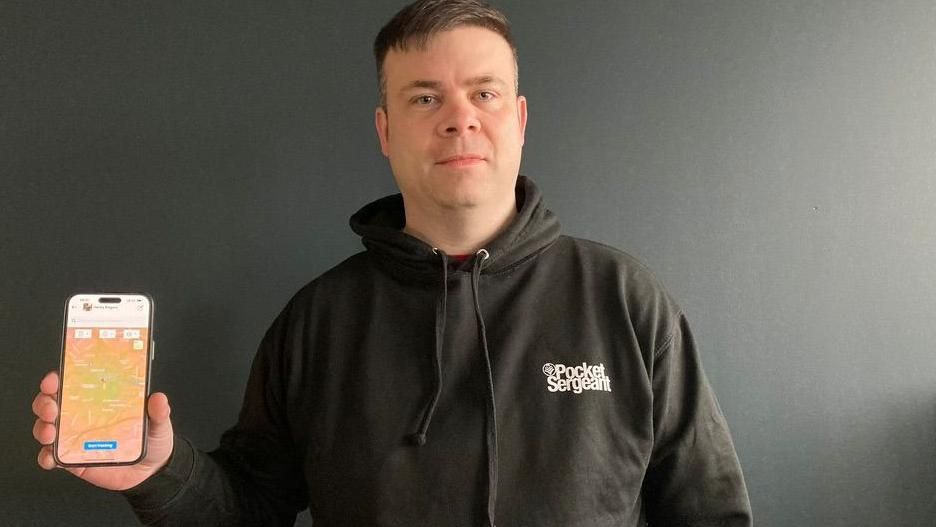New app launched to help find missing people

Former police officer Paul Cooper has created an app to help find missing people
- Published
A former police officer has made an app to help family and friends find missing loved ones.
Misper was created by Paul Cooper, from Stockton, who was inspired by his police career and personal experience of seeing the trauma missing people's loved ones went through.
The app is built upon publicly available research, which correlates factors such as gender, age and mental health conditions with the likelihood of where the missing person may be found.
Mr Cooper, 39, saw first hand the challenges involved in finding missing people and said he wanted to create a tool that could "make a real difference".
Mr Cooper has lost several friends to suicide and knows a number of relatives of friends who have gone missing.
On one occasion, he took a friend's brother, who was suicidal, to hospital for a mental health assessment.
The man was released, but was detained again by police for another mental health assessment before being allowed to return home.
He later took his own life.
Mr Cooper hopes the Misper app could help relatives find their missing loved ones
"I still think about what I could have done differently to help and whether any other options were available that may have prevented his death," Mr Cooper said.
"It's difficult to put into words what drove me to build the Misper app, other than the guilt and sadness I felt having dealt with people who later went on to take their own lives."
He said while the Misper app "won't bring back anyone we've lost to suicide", it could save someone who was "struggling today".
'Clear patterns'
Misper integrates data and research into a mobile application, using a traffic light system to indicate the likelihood of where a missing person suffering from specific mental health conditions might be found.
"It shows clear patterns, for example, suicidal females are often found closer to home than males," he said.
"The system is designed to guide search efforts more effectively, when there's no suspicion of third party involvement."
He has dedicated several years to developing the new app and hopes it will help the public better co-ordinate their efforts in searching for missing people.
If you have been affected by any of the issues raised in this story you can visit BBC Action Line.
Follow BBC Tees on X (formerly Twitter), external, Facebook, external and Instagram, external. Send your story ideas to northeastandcumbria@bbc.co.uk.
Related Topics
More stories from the BBC
- Published3 April
- Published1 March
- Published2 January
- Published1 April